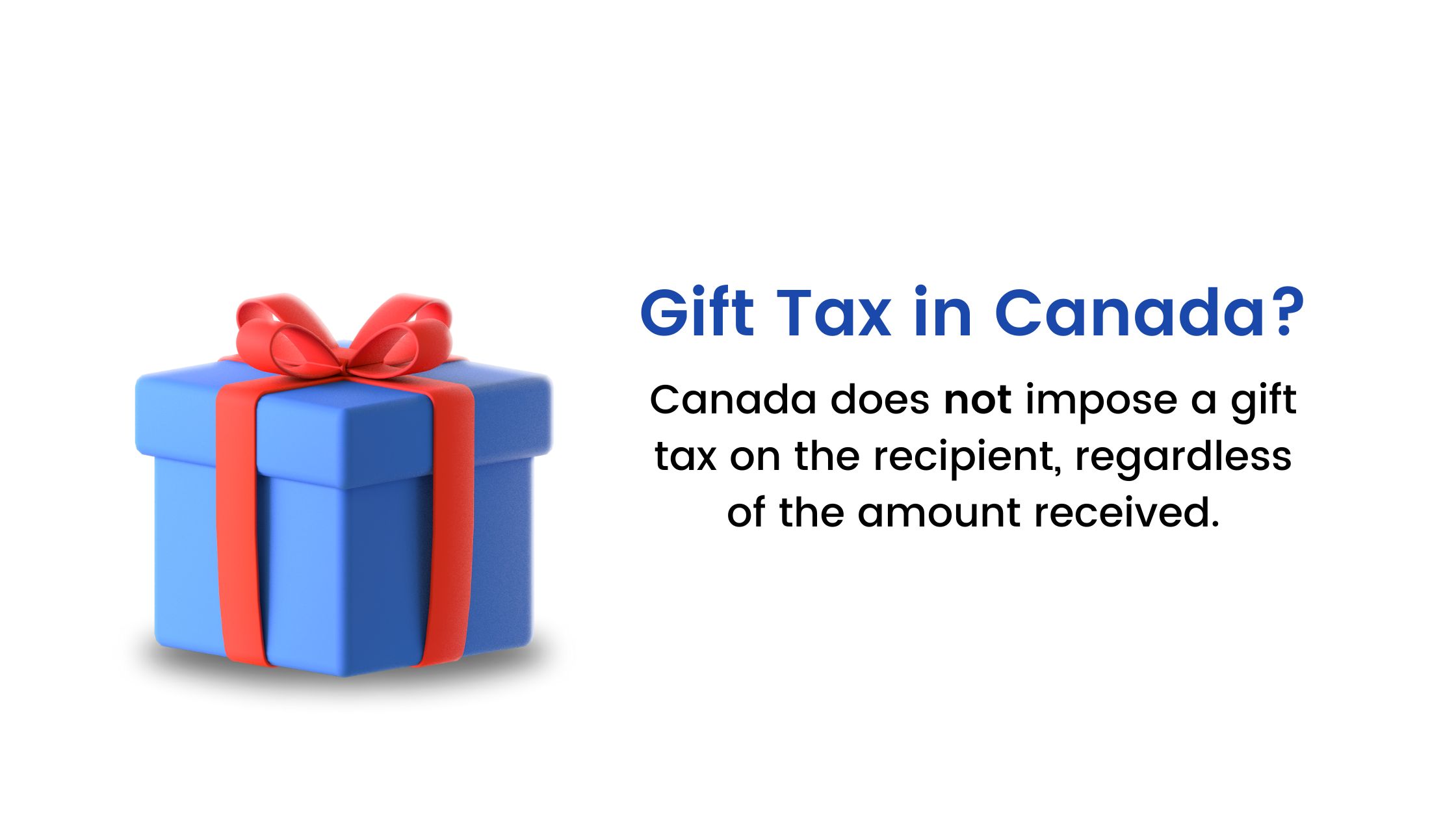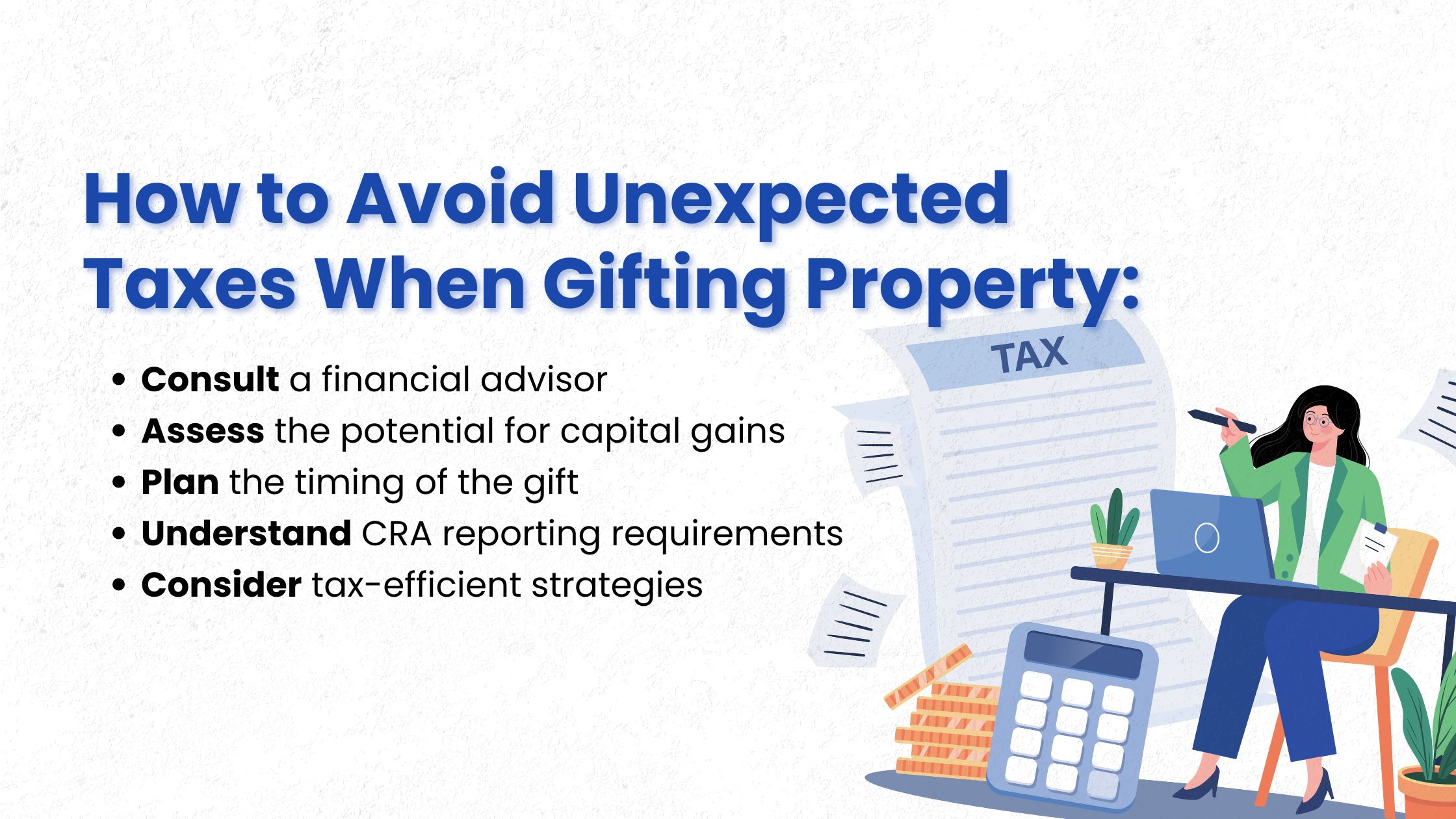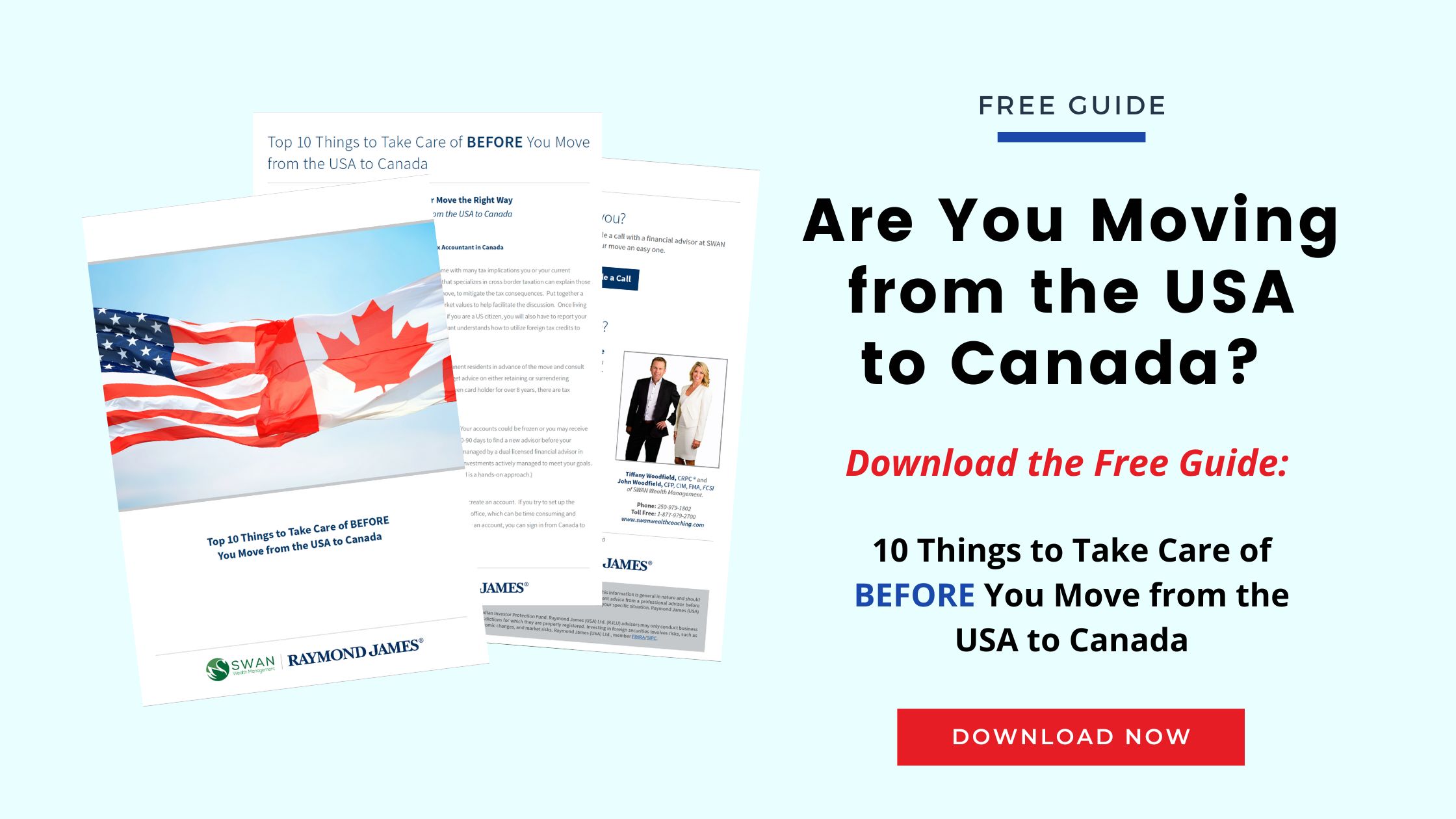Are Gifts Taxable in Canada?
Authors: Tiffany Woodfield, TEP®, Associate Portfolio Manager, CRPC®, CIM® and John Woodfield, Portfolio Manager, CFP®, CIM®
 Gifts in Canada are generally not taxable.
Gifts in Canada are generally not taxable.
If you receive a gift from a friend or family member, you don’t need to pay tax on it. For example, let’s say your parents gift you $10,000. You can accept this money without worrying about a tax bill. However, there are some exceptions. Gifts from employers or gifts that involve capital property, like real estate or stocks, might be subject to taxes.
It's important to understand these rules and make informed decisions. Let’s dive into the details of how different types of gifts are treated under Canadian tax law.
Are any gifts taxable in Canada?
Gifts from friends or family members, including cash or property, are usually tax-free.
However, some types of gifts are taxable. Gifts from employers are often considered taxable benefits. If your employer gives you a non-cash gift, like a vacation package or electronics, its value may be added to your income and taxed.
When it comes to property, the recipient doesn’t pay taxes, but the person giving the gift might. For example, gifting a house or stocks could trigger capital gains tax for the giver if the property has appreciated in value.
Taxable Gifts in Canada
- Cash gifts from an employer over $500
- Non-cash gifts from an employer if the total value exceeds $500
- Gifted property (e.g., real estate, stocks) may trigger capital gains tax for the giver
Non-Taxable Gifts in Canada
- Cash gifts from family or friends
- Property gifts (e.g., houses, stocks) for the recipient, though the giver may face capital gains tax
- Small, non-cash gifts from an employer under $500

Are Cash Gifts Taxable in Canada?
Cash gifts from friends or family are tax-free.
Whether it’s $1,000 or $100,000, receiving cash as a gift doesn’t trigger any tax for the person receiving it. For instance, if a parent gives their adult child $50,000 to help buy a home, that amount is not taxed in the child’s hands. However, if that same cash comes from an employer, it could be considered taxable income.
The key is to know who the giver is. Cash gifts from friends and family are safe, but gifts from employers are taxed.
Is There a Tax on Gifting Property?
Gifting property may lead to tax for the giver, not the recipient.
In Canada, if you gift property like a house or stocks, the person receiving it doesn’t pay taxes on the gift. However, the person giving the gift might face a capital gains tax. Suppose you bought a house for $200,000, and now it’s worth $500,000. If you gift that house, you may have to report a $300,000 capital gain. (This is assuming the giver didn’t designate the house as their principal residence and elected to use the PRE exemption on this house)
Planning ahead with a financial advisor is crucial to avoid unexpected tax bills when gifting significant assets.

Are Gifts from an Employer Taxed?
Yes, gifts from employers are often taxable.
If your employer gives you a gift that’s worth more than $500, it could be considered a taxable benefit. A taxable benefit means the value of the gift is added to your income and taxed at your regular income tax rate. For example, if your employer gives you a $1,000 holiday bonus in cash or a high-value item, you’ll likely see it reflected on your T4.
Smaller gifts under $500 might not be taxable but always check with a tax expert to be sure.
What Are the Tax Rules for Giving a Big Gift to a Family Member?
There are no specific tax rules in Canada for giving large gifts to family members.
When you give a cash gift to a family member, they won’t have to pay taxes on the amount, no matter how large. However, if you're giving property like a house or stocks, there might be tax consequences for you, the giver. For example, if the property has increased in value since you bought it, you may have to pay capital gains tax on the appreciated amount.
Consulting a tax advisor is crucial to avoid surprises when gifting valuable assets.
What Should I Do If I Get a Gift from Someone Outside Canada?
Receiving gifts from outside Canada typically doesn’t trigger taxes.
If a relative or friend from another country gives you a gift, it’s usually tax-free in your hands. Whether it’s cash or an asset, you won’t have to pay Canadian taxes on the gift itself. However, if the gift is an asset, like foreign property or investments, there could be foreign tax implications or reporting requirements depending on the country of origin.
It’s always a good idea to consult with a cross-border tax expert to understand the full picture.
Common Questions
What are the critical details of Canada’s gift tax?
Canada does not have a gift tax. This means individuals can give cash or property without the recipient paying taxes. However, if you gift property that has increased in value, the giver may need to pay capital gains tax on the increase in value.
How much money can a person receive as a gift without being taxed in Canada?
There is no limit on the amount of money you can receive as a gift in Canada. Regardless of the amount, cash gifts from family or friends are not taxable, and you don’t have to report them to the Canada Revenue Agency (CRA).
Do I have to report gifts as income in CRA?
No, you do not have to report gifts as income to the CRA. Cash or property gifts are not considered taxable income in Canada. However, some exceptions apply, such as gifts from employers or gifts of property that may involve other tax implications for the giver.
How does the Income Tax Act treat gifting a home?
The Income Tax Act treats gifting a home as a sale at fair market value. Thus, the giver may need to pay capital gains tax on any increase in the home’s value from when they bought it to when they gifted it, even if no money changes hands.
Can I gift a house to my kids without paying taxes in Canada?
Yes, you can gift a house to your kids without them paying taxes, but as the giver, you may owe capital gains tax. If the house has appreciated in value, you may be taxed on the increase from when you first bought it. You also may want to designate your home as your principal residence and use the PRE exemption. Remember you likely don’t want to add a child on the title to your home as it can add other complications,
Which types of gifts will provide the giver with a tax credit?
Charitable donations are the primary type of gift that provides the giver with a tax credit. Gifts made to registered charities in Canada can reduce your tax bill through donation tax credits, which vary based on the amount you give and your income level.
I was gifted stocks; should I put them in a tax-free savings account or RRSP?
If you are gifted stocks, placing them in a Tax-Free Savings Account (TFSA) allows your investment to grow tax-free, and withdrawals are also tax-free. Putting them in an RRSP may provide a tax deduction, but withdrawals will be taxed later. The choice depends on your financial goals, the available room in your TFSA and your RRSP.
Can I gift personal property such as a car or a valuable watch without paying gift tax?
Yes, you can gift personal property like a car or valuable watch without paying gift tax, as Canada doesn’t have a gift tax. However, if the property has increased in value, the giver may need to consider any capital gains tax implications.
Next Steps
If you’re a Canadian resident or are planning on moving to Canada or the US and need assistance with moving and optimizing your investments, estate planning, wealth management and portfolio management, please get in touch. At SWAN Wealth, we specialize in Canadian financial planning, cross-border financial planning and cross-border wealth management.
Read More
If you’re planning a cross-border move, these articles and guides will help you simplify your move and ensure you’ve covered everything.
Top Tax Saving Strategies for Canadians
A Simple Guide to How Your Inheritance Is Taxed in Canada
Certified Financial Planners in Canada
About the Authors
Tiffany Woodfield is an Associate Portfolio Manager licensed in Canada and the USA, a Chartered Investment Manager (CIM), a Chartered Retirement Planning Counselor (CRPC), a Trust and Estate Practitioner (TEP) and the co-founder of SWAN Wealth Management, along with her husband, John Woodfield. Tiffany advises clients who live in Canada and the United States and want to simplify their cross-border financial plan, move their assets across the border, and optimize their investments to minimize their tax burden. Together, Tiffany and John Woodfield help their clients simplify their cross-border finances and create long-term revenue streams that will keep their assets safe whether they live in Canada or the U.S.
John Woodfield is a Financial Management Advisor (FMA), a Chartered Investment Manager (CIM), and a Certified Financial Planner (CFP), and in 2007 was inducted as a fellow of the Canadian Securities Institute (FCSI). As a portfolio manager and CFP®, he works with clients across Canada. John Woodfield’s clients are families, individuals and business owners who understand the importance of comprehensive wealth and investment plans driven by the lifestyle they want to lead.
Schedule a Call
Schedule a 15-minute introductory call with SWAN Wealth Management. Click here to schedule a call.
▶️ Download the Cross-Border Guide





